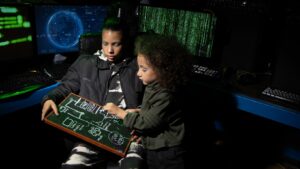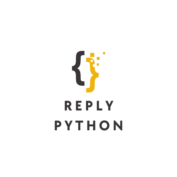 Curious about diving into the world of coding but unsure if it’s the right fit for you? The question of whether anyone can learn to code is a common one in today’s tech-driven society. The good news is that coding is a skill that’s accessible to anyone with the determination to learn. With the right resources and mindset, mastering coding languages can be within reach for beginners and seasoned learners alike.
Curious about diving into the world of coding but unsure if it’s the right fit for you? The question of whether anyone can learn to code is a common one in today’s tech-driven society. The good news is that coding is a skill that’s accessible to anyone with the determination to learn. With the right resources and mindset, mastering coding languages can be within reach for beginners and seasoned learners alike.
In this article, we’ll explore the idea that coding is not just for computer science experts or tech gurus. The democratization of coding education has made it possible for individuals from all backgrounds to acquire this valuable skill. Whether you’re a student, a career changer, or someone simply intrigued by the world of programming, the journey to becoming a proficient coder is open to all.
Can Anyone Learn to Code
Coding has evolved into an essential skill, transcending its traditional association with computer science experts. The democratization of coding education has opened doors for individuals from diverse backgrounds to delve into programming. With determination, the right resources, and a growth mindset, mastering coding languages is within reach for anyone—be it students, career changers, or coding enthusiasts.
The Rise of Coding as an Essential Skill
In the current digital landscape, coding skills have become indispensable. From web development to data analysis, proficiency in coding is highly sought after across various industries.  Companies are increasingly emphasizing the importance of coding abilities, recognizing them as key assets for innovation and problem-solving. As a result, learning to code not only enhances one’s skill set but also increases employment opportunities in a technology-driven world.
Companies are increasingly emphasizing the importance of coding abilities, recognizing them as key assets for innovation and problem-solving. As a result, learning to code not only enhances one’s skill set but also increases employment opportunities in a technology-driven world.
Despite the accessibility of coding resources, beginners often encounter challenges when starting their coding journey. One common obstacle is the initial learning curve, where concepts may seem daunting at first. Additionally, staying motivated throughout the learning process can be challenging, especially when faced with complex programming tasks. However, with perseverance and a structured learning approach, beginners can overcome these obstacles and embark on a rewarding coding experience.
How Different Backgrounds Impact Learning to Code
When it comes to learning to code, individuals from various backgrounds may have different experiences based on their educational background and age. Let’s explore how these factors influence the process:
Educational Background and Coding
One’s educational background can significantly impact their journey in learning to code. While individuals with a strong foundation in math or science might find certain coding concepts more intuitive, those from non-technical backgrounds shouldn’t feel discouraged. Coding is a skill that can be acquired through practice and dedication, regardless of one’s prior education.
For example, a student majoring in computer science might grasp coding principles faster due to exposure to related subjects, while someone with a humanities background might need to spend extra time understanding the basics. However, with the abundance of online resources and coding bootcamps catering to diverse learners, anyone willing to put in the effort can become proficient in coding, irrespective of their educational background.
Age and Learning to Code
 Age is another factor that influences how individuals approach learning to code. Younger learners, such as students in their teens or early twenties, may adapt more quickly to new coding languages and methodologies, as they are often more open to learning and exploring new technologies. On the other hand, older individuals looking to pick up coding skills might face initial challenges due to unfamiliarity with digital tools and programming concepts.
Age is another factor that influences how individuals approach learning to code. Younger learners, such as students in their teens or early twenties, may adapt more quickly to new coding languages and methodologies, as they are often more open to learning and exploring new technologies. On the other hand, older individuals looking to pick up coding skills might face initial challenges due to unfamiliarity with digital tools and programming concepts.
Nevertheless, age should not be perceived as a barrier to mastering coding. With the right mindset and resources tailored to different age groups, individuals of all ages can develop coding proficiency. Many successful programmers started their coding journeys later in life, proving that age is not a limiting factor in pursuing a career in tech. The key lies in being persistent, setting achievable learning goals, and seeking support from coding communities and mentors to navigate any challenges that may arise.
Logical Thinking and Problem Solving
Coding involves breaking down complex problems into smaller, more manageable parts. Individuals need to think logically to understand how different elements interact and affect each other in a program. Strong problem-solving skills are essential for identifying issues in code and devising effective solutions.

